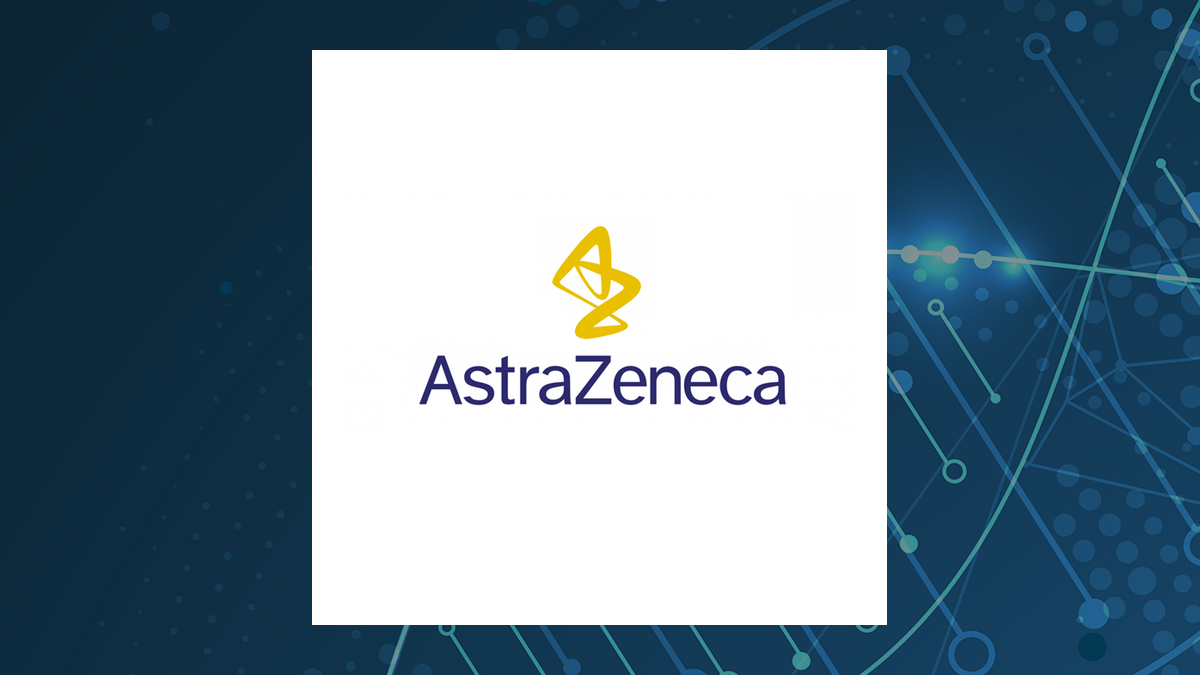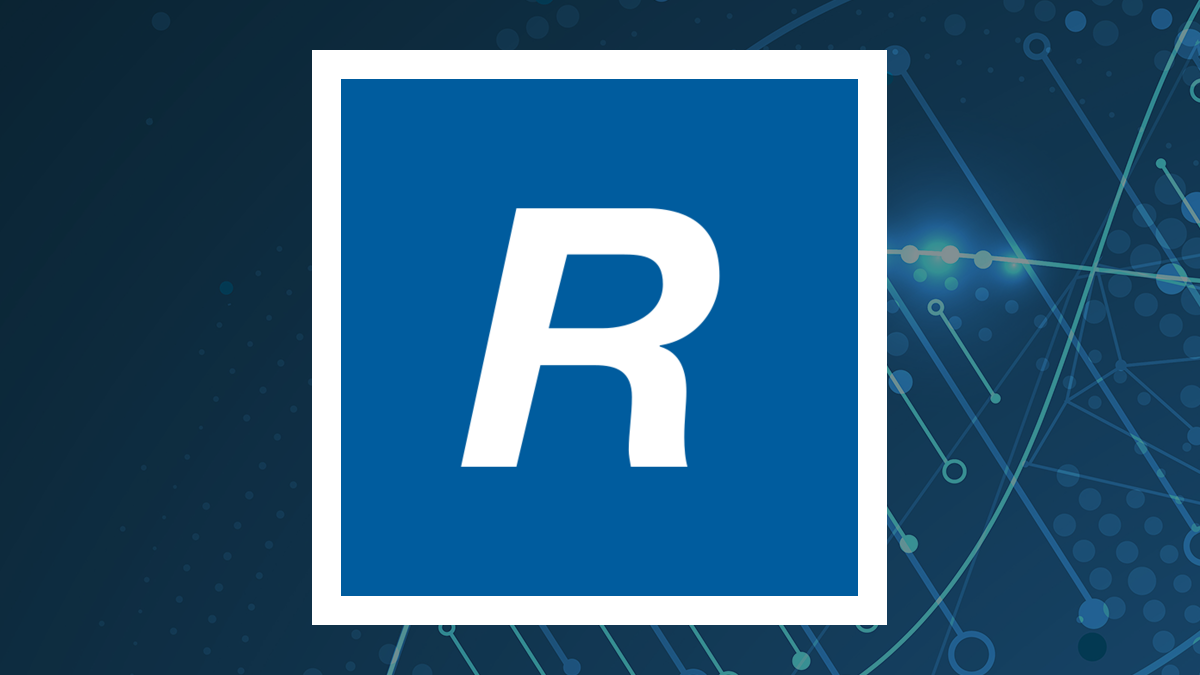AstraZeneca (NASDAQ:AZN – Get Free Report) and Regeneron Pharmaceuticals (NASDAQ:REGN – Get Free Report) are both large-cap medical companies, but which is the superior stock? We will contrast the two companies based on the strength of their valuation, earnings, analyst recommendations, risk, dividends, institutional ownership and profitability.
Analyst Ratings
This is a summary of current ratings and price targets for AstraZeneca and Regeneron Pharmaceuticals, as provided by MarketBeat.com.
| Sell Ratings | Hold Ratings | Buy Ratings | Strong Buy Ratings | Rating Score | |
| AstraZeneca | 1 | 1 | 7 | 2 | 2.91 |
| Regeneron Pharmaceuticals | 1 | 4 | 16 | 1 | 2.77 |
AstraZeneca currently has a consensus price target of $89.75, suggesting a potential upside of 15.20%. Regeneron Pharmaceuticals has a consensus price target of $1,118.62, suggesting a potential upside of 6.41%. Given AstraZeneca’s stronger consensus rating and higher probable upside, analysts plainly believe AstraZeneca is more favorable than Regeneron Pharmaceuticals.
Valuation and Earnings
| Gross Revenue | Price/Sales Ratio | Net Income | Earnings Per Share | Price/Earnings Ratio | |
| AstraZeneca | $45.81 billion | 5.27 | $5.96 billion | $2.04 | 38.19 |
| Regeneron Pharmaceuticals | $13.49 billion | 8.59 | $3.95 billion | $33.85 | 31.06 |
AstraZeneca has higher revenue and earnings than Regeneron Pharmaceuticals. Regeneron Pharmaceuticals is trading at a lower price-to-earnings ratio than AstraZeneca, indicating that it is currently the more affordable of the two stocks.
Volatility and Risk
AstraZeneca has a beta of 0.47, indicating that its stock price is 53% less volatile than the S&P 500. Comparatively, Regeneron Pharmaceuticals has a beta of 0.12, indicating that its stock price is 88% less volatile than the S&P 500.
Institutional and Insider Ownership
20.4% of AstraZeneca shares are held by institutional investors. Comparatively, 83.3% of Regeneron Pharmaceuticals shares are held by institutional investors. 7.5% of Regeneron Pharmaceuticals shares are held by company insiders. Strong institutional ownership is an indication that large money managers, hedge funds and endowments believe a stock will outperform the market over the long term.
Profitability
This table compares AstraZeneca and Regeneron Pharmaceuticals’ net margins, return on equity and return on assets.
| Net Margins | Return on Equity | Return on Assets | |
| AstraZeneca | 13.11% | 29.34% | 11.15% |
| Regeneron Pharmaceuticals | 32.04% | 16.80% | 13.13% |
Summary
AstraZeneca beats Regeneron Pharmaceuticals on 8 of the 15 factors compared between the two stocks.
About AstraZeneca
 AstraZeneca PLC, a biopharmaceutical company, focuses on the discovery, development, manufacture, and commercialization of prescription medicines. The company's marketed products include Tagrisso, Imfinzi, Lynparza, Calquence, Enhertu, Orpathys, Truqap, Zoladex, Faslodex, Farxiga, Brilinta, Lokelma, Roxadustat, Andexxa, Crestor, Seloken, Onglyza, Bydureon, Fasenra, Breztri, Symbicort, Saphnelo, Tezspire, Pulmicort, Bevespi, and Daliresp for cardiovascular, renal, metabolism, and oncology. Its marketed products also comprise Vaxzevria, Beyfortus, Synagis, FluMist, Soliris, Ultomiris, Strensiq, Koselugo, and Kanuma for covid-19 and rare disease. The company serves primary care and specialty care physicians through distributors and local representative offices in the United Kingdom, rest of Europe, the Americas, Asia, Africa, and Australasia. It has a collaboration agreement with Neurimmune AG to develop and commercialize NI006. The company was formerly known as Zeneca Group PLC and changed its name to AstraZeneca PLC in April 1999. AstraZeneca PLC was incorporated in 1992 and is headquartered in Cambridge, the United Kingdom.
AstraZeneca PLC, a biopharmaceutical company, focuses on the discovery, development, manufacture, and commercialization of prescription medicines. The company's marketed products include Tagrisso, Imfinzi, Lynparza, Calquence, Enhertu, Orpathys, Truqap, Zoladex, Faslodex, Farxiga, Brilinta, Lokelma, Roxadustat, Andexxa, Crestor, Seloken, Onglyza, Bydureon, Fasenra, Breztri, Symbicort, Saphnelo, Tezspire, Pulmicort, Bevespi, and Daliresp for cardiovascular, renal, metabolism, and oncology. Its marketed products also comprise Vaxzevria, Beyfortus, Synagis, FluMist, Soliris, Ultomiris, Strensiq, Koselugo, and Kanuma for covid-19 and rare disease. The company serves primary care and specialty care physicians through distributors and local representative offices in the United Kingdom, rest of Europe, the Americas, Asia, Africa, and Australasia. It has a collaboration agreement with Neurimmune AG to develop and commercialize NI006. The company was formerly known as Zeneca Group PLC and changed its name to AstraZeneca PLC in April 1999. AstraZeneca PLC was incorporated in 1992 and is headquartered in Cambridge, the United Kingdom.
About Regeneron Pharmaceuticals
 Regeneron Pharmaceuticals, Inc. discovers, invents, develops, manufactures, and commercializes medicines for treating various diseases worldwide. The company's products include EYLEA injection to treat wet age-related macular degeneration and diabetic macular edema; myopic choroidal neovascularization; diabetic retinopathy; neovascular glaucoma; and retinopathy of prematurity. It also provides Dupixent injection to treat atopic dermatitis and asthma in adults and pediatrics; Libtayo injection to treat metastatic or locally advanced cutaneous squamous cell carcinoma; Praluent injection for heterozygous familial hypercholesterolemia or clinical atherosclerotic cardiovascular disease in adults; REGEN-COV for covid-19; and Kevzara solution for treating rheumatoid arthritis in adults. In addition, the company offers Inmazeb injection for infection caused by Zaire ebolavirus; ARCALYST injection for cryopyrin-associated periodic syndromes, including familial cold auto-inflammatory syndrome and muckle-wells syndrome; and ZALTRAP injection for intravenous infusion to treat metastatic colorectal cancer; and develops product candidates for treating patients with eye, allergic and inflammatory, cardiovascular and metabolic, infectious, and rare diseases; and cancer, pain, and hematologic conditions. It has collaboration with Mammoth Biosciences, Inc. to research, develop and commercialize in vivo CRISPR-based gene editing therapies for multiple tissues and cell types. The company was incorporated in 1988 and is headquartered in Tarrytown, New York.
Regeneron Pharmaceuticals, Inc. discovers, invents, develops, manufactures, and commercializes medicines for treating various diseases worldwide. The company's products include EYLEA injection to treat wet age-related macular degeneration and diabetic macular edema; myopic choroidal neovascularization; diabetic retinopathy; neovascular glaucoma; and retinopathy of prematurity. It also provides Dupixent injection to treat atopic dermatitis and asthma in adults and pediatrics; Libtayo injection to treat metastatic or locally advanced cutaneous squamous cell carcinoma; Praluent injection for heterozygous familial hypercholesterolemia or clinical atherosclerotic cardiovascular disease in adults; REGEN-COV for covid-19; and Kevzara solution for treating rheumatoid arthritis in adults. In addition, the company offers Inmazeb injection for infection caused by Zaire ebolavirus; ARCALYST injection for cryopyrin-associated periodic syndromes, including familial cold auto-inflammatory syndrome and muckle-wells syndrome; and ZALTRAP injection for intravenous infusion to treat metastatic colorectal cancer; and develops product candidates for treating patients with eye, allergic and inflammatory, cardiovascular and metabolic, infectious, and rare diseases; and cancer, pain, and hematologic conditions. It has collaboration with Mammoth Biosciences, Inc. to research, develop and commercialize in vivo CRISPR-based gene editing therapies for multiple tissues and cell types. The company was incorporated in 1988 and is headquartered in Tarrytown, New York.
Receive News & Ratings for AstraZeneca Daily - Enter your email address below to receive a concise daily summary of the latest news and analysts' ratings for AstraZeneca and related companies with MarketBeat.com's FREE daily email newsletter.
